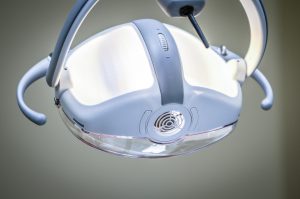I see my dentist twice a year and brush and floss every day. My cleanings have been a breeze, and I’ve only had a handful of cavities during my lifetime. I have been accustomed to hearing compliments such as, “You have awesome teeth!” and, “You’re doing a great job.” That is, until my last visit.
Six months ago, the hygienist seemed to labor to get my teeth clean and spent far too long scraping and digging at the outside of my lower left molar. It was painful. The young lady then asked me if anything has changed because I had more tartar than usual. “No,” I answered, only to be asked, “Have you been flossing every day?” Beginning to feel insulted, I assured her that I have. She proceeded to explain the proper way to floss and asked if I floss beyond the last tooth. Feeling a little like a scolded child, I admitted that I usually don’t (isn’t floss for between teeth?), but would start. The dentist came in, took a look, and said “Everything looks good.”
I went home with a sore mouth and my nose out of joint. It made more sense to me now that my husband calls a hygienist from his past Attila the Hun. I understood why my mom dreads going to the dentist. They’re used to getting yelled at in the office. Yelled at? Well, I wasn’t exactly yelled at . In fact, the young lady was politely informing me that I should work a little harder at keeping my mouth healthy. I couldn’t deny that she found tartar, and I have been diligent since then to reach all the way back with the floss and to brush that area more carefully. Thinking back, I may have been more embarrassed than insulted.
A bit of introspection reveals that by saying I was yelled at, I’ve managed to shift the blame to her. We consider yelling to be a negative behavior. I wonder how many times a student has claimed that a teacher yelled at him when the interaction was calm, but critical. Most of us don’t like to be corrected, whether we’re children or adults. Sometimes, rather than admitting there’s room for improvement, we accuse the other person of yelling or judging.
One of the Winners Walk Tall lessons that I take to First Graders is called, “Try to Compliment, Not to Criticize.” When I presented it this year, I used my dentist’s office experience to make a point. We first explored the positive action of complimenting. We discussed being kind and keeping negative opinions about others to ourselves. Importance was placed on considering the other person’s feelings when we speak. I then related being chewed out about my teeth and told them that it made me feel bad. Had the hygienist been wrong in pointing out my flaw? They quickly shook their heads and said, “No, because she was trying to help you.” Lesson understood.
My hope is that these young students can take instruction and critique well, enabling them to improve skills, increase knowledge, and have respect for their advisors. And yet, my own pride sometimes threatens my ability to accept helpful advice without feeling a bit defensive. Considering the source helps. When the correction comes from someone I’m paying to help me be healthy, turning a deaf ear wouldn’t be wise. Should someone who loves me point out a concern about my behavior or attitude, humility will enable me to resist taking offense and to carefully examine my life.

Listen to advice and accept instruction, that you may gain wisdom in the future. Proverbs 19:20
I have three more “at the dentist” experiences to write about. My next visit is coming up in a couple of weeks. If there is criticism, I’m expecting it to be about abrasion from brushing too hard. The series could be extended…